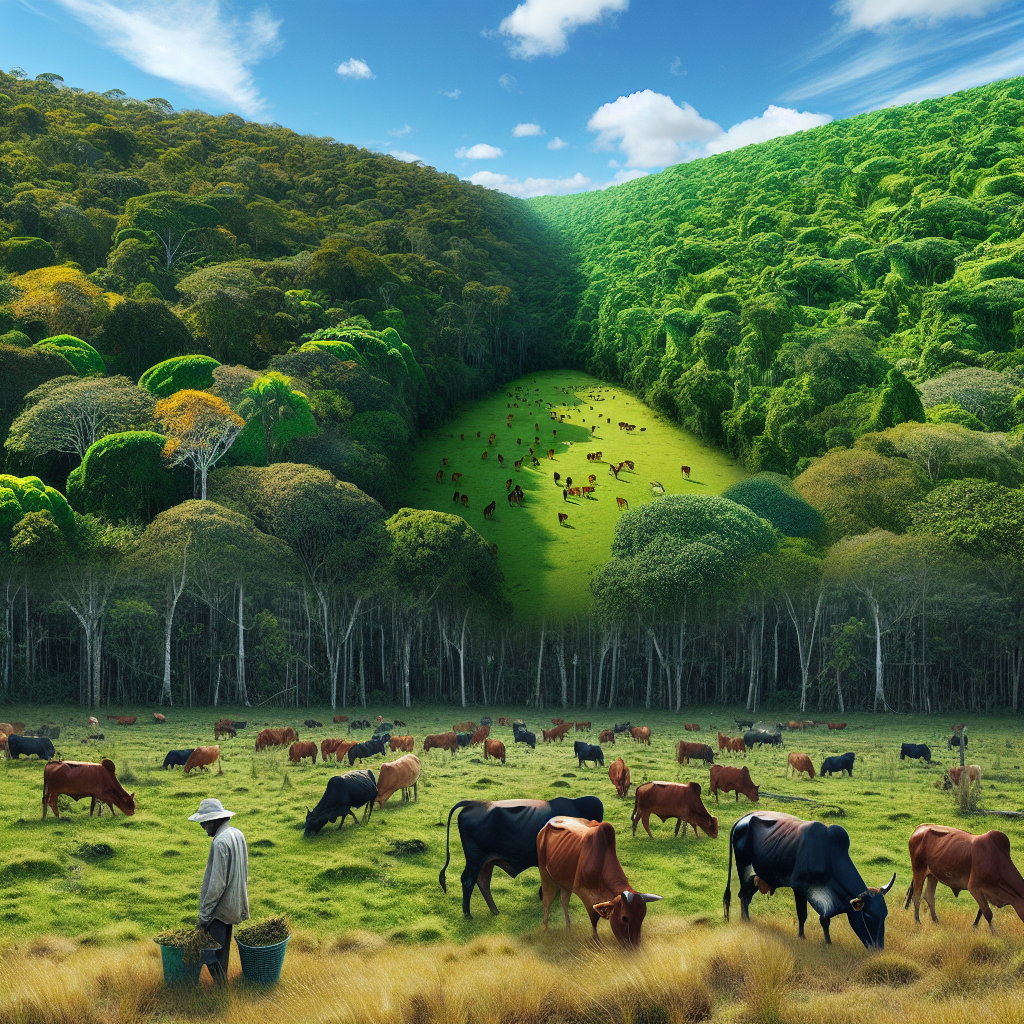
Transforming Beef Production: Achieving Deforestation-Free Beef in the Amazon
The Environmental Impact of Beef Production in Brazil
As the world’s largest beef exporter, Brazil plays a pivotal role in the global beef industry. However, this role comes with significant environmental challenges. Nearly 25% of the tropical habitat loss globally is attributed to Brazilian beef. Increased global demand for beef often leads to the conversion of native habitats into pasturelands, pushing the Amazon towards a critical climate tipping point.
Yet, change is possible. Brazil has the unique opportunity to revolutionize the global beef value chain and decouple habitat loss from beef production. Achieving this requires a multifaceted approach, including traceability, regulatory support, and producer incentives.
Pará’s Vision for Sustainable Cattle Production
In 2023, the Brazilian state of Pará launched the nation’s first mandatory cattle traceability program with environmental requirements. This initiative, supported by The Nature Conservancy and other stakeholders, aims to eliminate deforestation and land conversion from the supply chain. A study in collaboration with Bain estimates potential value growth of 45%, increasing annual production value from $2 billion to $2.9 billion.
Transitioning to a model of deforestation- and conversion-free beef production demands market-wide collaboration. Public-private partnerships are crucial in accelerating program implementation and increasing the availability of traceable beef and leather products.
Industry Engagement and Market Integrity
Pará’s initiative has seen notable industry support, with producers and companies like JBS investing in cattle tagging to facilitate a sustainable transition. However, realizing the full economic and environmental benefits requires demand-side market players to embrace similar ambitions.
The World Economic Forum’s First Movers Coalition for Food (FMC4F) alongside the Tropical Forest Alliance (TFA) highlights the role of companies in the value chain to enhance sustainable procurement practices. Companies can contribute by:
- Expressing interest in sustainable beef products from the Amazon, signaling market demand for environmentally conscious products.
- Investing in supply chain initiatives, supporting programs like Pará’s and collaborating with other players to overcome production bottlenecks.
- Signing formal sourcing agreements once a traceable supply is established to secure return on investments and normalize sustainable beef production.
Through these strategies, businesses not only secure sustainable beef supply chains but also align with consumer demand and improve trade prospects in markets restricting products linked to deforestation.
Building Sustainable Global Food Systems
Our global food systems substantially drive habitat loss and greenhouse gas emissions, with beef alone accounting for 7% of global emissions. Deforestation related to commodity production, including beef, soy, and palm oil, constitutes 40% of worldwide deforestation.
The role of food systems in achieving climate and biodiversity goals is increasingly recognized by policymakers and businesses. Initiatives introduced at international meetings, such as COP28 and COP29, underline formalized action to reduce deforestation.
The forthcoming European Union Deforestation Regulation seeks to end deforestation in commodity supply chains, potentially serving as a blueprint for broader international efforts.
A Call for Collaborative Action
Productive engagement from across the global supply chain is fundamental in achieving the twin goals of mitigating climate effects and enhancing food security. The success of Pará’s program illustrates the power of collective initiative.
As Brazil positions itself for leadership at COP30, its commitment to driving collaborative climate action and sustainable food systems becomes increasingly vital. This commitment was reflected at the G20 summit, where Brazil emphasized the role of agriculture in emissions reduction and biodiversity protection.
With the active collaboration of governments, civil society, and industry stakeholders, global climate and nature goals become increasingly attainable. The Pará Sustainable Cattle Program exemplifies the necessary partnership-driven approach. For the program’s success, it needs committed investment from global value chain partners.
Conclusion
Business investments in sustainable beef production offer strategic advantages: securing a resilient supply chain, meeting diverse consumer demands, and enhancing environmental commitments. Harnessing the potential of this sustainable approach can redefining how the world interacts with its natural resources, nourishing planet-wide sustainability.
Source: https://www.weforum.org/stories/2025/01/beef-deforestation-amazon/


Great information shared.. really enjoyed reading this post thank you author for sharing this post .. appreciated
This is my first time pay a quick visit at here and i am really happy to read everthing at one place